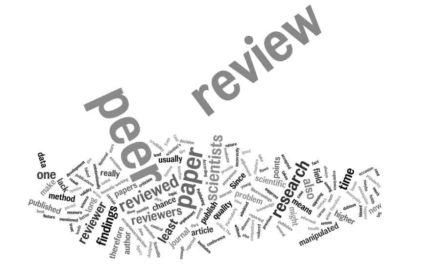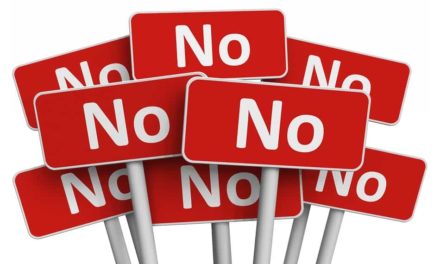Valuable Lessons on a Published Sexist Peer Review
The online buzz that has arisen around Fiona Ingleby’s tweets regarding a sexist peer review that resulted in the rejection of a paper she and a colleague, Megan Head, submitted to a Public Library of Science (PLOS) journal has been likened to a storm. Ingleby tweeted about the situation when the journal was slow to respond to her complaint, the story swept around the internet with tempestuous speed and PLOS ONE took action. The objectionable review has been scrubbed from the record, the reviewer has been removed from the journal’s database, the academic editor who handled the manuscript has been asked to step down and the paper has been sent to a new editor for re-review.
If you have not followed the case and would like to catch up, the original Retraction Watch post with several updates can be found at http://bit.ly/1OFyuDS. A Times Higher Education article at http://bit.ly/1QObsco provides more information on the content of the bizarre review. A long piece by a concerned founder of PLOS and member of its board of directors highlights what he calls science’s ‘serious sexism problem’ (http://bit.ly/1JAiizL), and a thoughtful post from an editor’s perspective focuses on the event as a collective ‘teaching moment’ (http://bit.ly/1QpCwxp). Wherever you happen to get your information, however, do pay special attention to how excerpts from the review are interpreted, particularly in relation to the topic of the rejected paper, which focuses on gender differences in the transition from doctoral to postdoctoral status. Although it is certainly essential to an understanding of the reviewer’s comments, that topic is not even mentioned in certain discussions, and this seems characteristic of how some of the information about this regrettable situation travelled through cyberspace.
The publicity and debate have certainly resurrected discussions of a number of key issues associated with scholarly publication: the roles and responsibilities of editors, the nature of peer reviews and the question of reviewer anonymity, perceptions of gender discrimination and diversity, and even the precise meaning and use of the terminology that defines what is correct and appropriate in scholarly contexts. What seems particularly clear amidst the murky waters of debate is that those reviewing manuscripts for scholarly journals could in some cases be better prepared regarding exactly what is expected in intellectual and ethical terms when participating in the peer-review process. The Committee on Publication Ethics (COPE) already has helpful ‘Ethical Guidelines for Peer Reviewers’ available as a pdf file that can be consulted by individual reviewers, used by journal editors to guide the conduct of their reviewers or introduced in the classroom to train students as the peer reviewers of the future (http://bit.ly/1ht1W9u). As PLOS ONE mops up the mess, I suspect that many journals without guidelines of this kind will be seriously considering them.

















